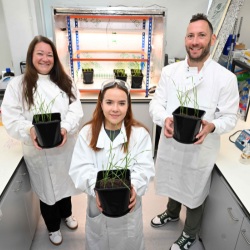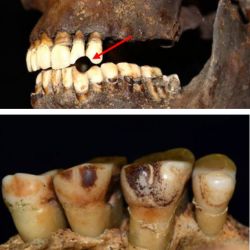-
Study
-
Quick Links
- Open Days & Events
- Real-World Learning
- Unlock Your Potential
- Tuition Fees, Funding & Scholarships
- Real World Learning
-
Undergraduate
- Application Guides
- UCAS Exhibitions
- Extended Degrees
- School & College Outreach
- Information for Parents
-
Postgraduate
- Application Guide
- Postgraduate Research Degrees
- Flexible Learning
- Change Direction
- Register your Interest
-
Student Life
- Students' Union
- The Hub - Student Blog
- Accommodation
- Northumbria Sport
- Support for Students
-
Learning Experience
- Real-World Learning
- Research-enriched learning
- Graduate Futures
- The Business Clinic
- Study Abroad
-
-
International
International
Northumbria’s global footprint touches every continent across the world, through our global partnerships across 17 institutions in 10 countries, to our 277,000 strong alumni community and 150 recruitment partners – we prepare our students for the challenges of tomorrow. Discover more about how to join Northumbria’s global family or our partnerships.
View our Global Footprint-
Quick Links
- Course Search
- Undergraduate Study
- Postgraduate Study
- Information for Parents
- London Campus
- Northumbria Pathway
- Cost of Living
- Sign up for Information
-
International Students
- Information for International Students
- Northumbria and your Country
- International Events
- Application Guide
- Entry Requirements and Education Country Agents
- Global Offices and Regional Teams
- English Requirements
- English Language Centre
- International student support
- Cost of Living
-
International Fees and Funding
- International Undergraduate Fees
- International Undergraduate Funding
- International Masters Fees
- International Masters Funding
- International Postgraduate Research Fees
- International Postgraduate Research Funding
- Useful Financial Information
-
International Partners
- Agent and Representatives Network
- Global Partnerships
- Global Community
-
International Mobility
- Study Abroad
- Information for Incoming Exchange Students
-
-
Business
Business
The world is changing faster than ever before. The future is there to be won by organisations who find ways to turn today's possibilities into tomorrows competitive edge. In a connected world, collaboration can be the key to success.
More on our Business Services-
Business Quick Links
- Contact Us
- Business Events
- Research and Consultancy
- Education and Training
- Workforce Development Courses
- Join our mailing list
-
Education and Training
- Higher and Degree Apprenticeships
- Continuing Professional Development
- Apprenticeship Fees & Funding
- Apprenticeship FAQs
- How to Develop an Apprentice
- Apprenticeship Vacancies
- Enquire Now
-
Research and Consultancy
- Space
- Energy
- AI Futures
- CHASE: Centre for Health and Social Equity
- NESST
-
-
Research
Research
Northumbria is a research-rich, business-focused, professional university with a global reputation for academic quality. We conduct ground-breaking research that is responsive to the science & technology, health & well being, economic and social and arts & cultural needs for the communities
Discover more about our Research-
Quick Links
- Research Peaks of Excellence
- Academic Departments
- Research Staff
- Postgraduate Research Studentships
- Research Events
-
Research at Northumbria
- Interdisciplinary Research Themes
- Research Impact
- REF
- Partners and Collaborators
-
Support for Researchers
- Research and Innovation Services Staff
- Researcher Development and Training
- Ethics, Integrity, and Trusted Research
- University Library
- Vice Chancellors Fellows
-
Research Degrees
- Postgraduate Research Overview
- Doctoral Training Partnerships and Centres
- Academic Departments
-
Research Culture
- Research Culture
- Research Culture Action Plan
- Concordats and Commitments
-
-
About Us
-
About Northumbria
- Our Strategy
- Our Staff
- Our Schools
- Place and Partnerships
- Leadership & Governance
- University Services
- Northumbria History
- Contact us
- Online Shop
-
-
Alumni
Alumni
Northumbria University is renowned for the calibre of its business-ready graduates. Our alumni network has over 253,000 graduates based in 178 countries worldwide in a range of sectors, our alumni are making a real impact on the world.
Our Alumni - Work For Us
The Chemistry Research and Innovation Group (CRaIG) is an internationally recognised group of chemistry academics working across discipline boundaries in a range of sectors from chemical and materials synthesis, to chemical and bioanalysis and predictive modelling. We comprise a core of experienced academic project leaders at all levels from Senior Lecturer to Professor with funding from research councils (principally EPSRC), InnovateUK and commercial partners whilst being supported by the university in dedicated synthesis laboratories, analytical chemistry suites and its own high performance computing cluster.
Based in the Department of Applied Sciences, with colleagues from the biosciences and food sciences, we have a range of research projects spanning the chemistry/biosciences interface including novel approaches to neurodegenerative conditions, cancer and microbial infection, the rapid detection of bacteria such as Listeria, and the use of biotechnology and biocatalysis to provide environmentally non-polluting chemical processes. This research has been funded by research councils and commercial partners, and resulted in top-quartile publications and patents.
In addition, CRaIG members also work closely with physics and engineering experts on the creation of organic LEDs, antifouling and controlled release functional polymers, and state-of-art portable spectroscopic instruments with integral intelligent data analysis.
The group also develops methods in chemical analysis using its wide array of instrumentation. Recent and current targets for identification and quantitation include the volatile fingerprint of bacterial cultures, malodour from laundry, microplastics and detergent levels in environmental samples and artists’ paint, ink and media spanning AD 400 to the present day from museums and galleries worldwide. CRaiG staff have in-house access to an extensive set of instrumentation including two Thermo QExactive quadropole-orbitrap mass spectrometers offering small molecule and biomolecule target identification, a Jeol 400MHz multinuclear NMR Spectrometer, differential scanning calorimetry, elemental analysis by inductively coupled plasma spectroscopy, atomic absorption spectroscopy & X-ray fluorescence, UV/Vis/raman spectroscopy and fluorimetry, and a suite dedicated to HPLC and GC.
Recent research highlights include:
- biocatalysis
- detection of art’s origins in situ
- OLEDS for digital displays
Selected recent publications (available here):
Pander, Piotr, Bulmer, Rachel, Martinscroft, Ross, Thompson, Stuart, Lewis, Frank, Penfold, Thomas, Dias, Fernando and Kozhevnikov, Valery (2018) 1,2,4-Triazines in the Synthesis of Bipyridine Bisphenolate ONNO Ligands and Their Highly Luminescent Tetradentate Pt(II) Complexes for Solution-Processable OLEDs. Inorganic Chemistry. ISSN 0020-1669
Burton, Michael, Perry, John D., Stanforth, Stephen and Turner, Hayley J.(2018) The synthesis of novel chromogenic enzyme substrates for detection of bacterial glycosidases and their applications in diagnostic microbiology. Bioorganic & Medicinal Chemistry, 26 (17). pp. 4841-4849. ISSN 0968-0896
Bahroun, Najat, Perry, John, Stanforth, Stephen and Dean, John (2018) Use of exogenous volatile organic compounds to detect Salmonella in milk. Analytica Chimica Acta, 1028. pp. 121-130. ISSN 0003-2670 Workman, David, Hunter, Michael, Dover, Lynn and Tetard, David(2016) Synthesis of novel Iron(III) chelators based on triaza macrocycle backbone and 1-hydroxy-2(H)-pyridin-2-one coordinating groups and their evaluation as antimicrobial agents. Journal of Inorganic Biochemistry, 160. pp. 49-58. ISSN 0162-0134
Taylor, Carl, Lough, Fraser, Stanforth, Stephen, Schwalbe, Ed, Fowlis, Ian and Dean, John (2017)Analysis of Listeria using exogenous volatile organic compound metabolites and their detection by static headspace–multi-capillary column–gas chromatography–ion mobility spectrometry (SHS–MCC–GC–IMS). Analytical and Bioanalytical Chemistry, 409 (17). pp. 4247-4256. ISSN 1618-2642
Beeby, Andrew, Gameson, Richard and Nicholson, Catherine (2016) Illuminators’ Pigments in Lancastrian England. Manuscripta, 60 (2). pp. 143-164. ISSN 0025-2603
Downs, Robert, Dean, John, Downer, Adrian and Perry, Justin (2017) Determination of the Biocide Econea® in Artificial Seawater by Solid Phase Extraction and High Performance Liquid Chromatography Mass Spectrometry. Separations, 4 (4). p. 34. ISSN 2297-8739
Latest News and Features

Northumbria expands results day support for students
Northumbria University is expanding and enhancing the support it provides to students receiving…

Smart bacteria could transform global agricultural food production
With the global population expected to reach 10 billion by 2050 and crop yields declining annually,…

Scientist honoured for voluntary work by Royal Society of Chemistry
An Assistant Professor at Northumbria University won the Royal Society of Chemistry’s Award…

Smoking leaves lasting mark on teeth, research reveals
Researchers from Northumbria University have discovered that smokers have tell-tale signs of…

Northumbria wins recognition for expanding access to higher education
Northumbria University has been named Higher Education Institution of the Year at a prestigious…

Academy of Medical Sciences funds new research from emerging scientific leaders
Two biomedical sciences researchers from Northumbria University have been awarded grants to…
